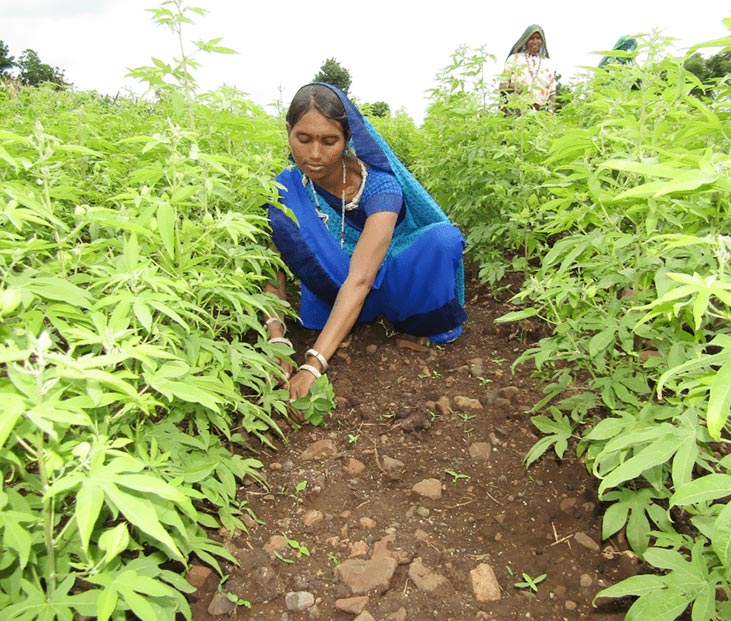LIVELIHOOD
The region of Maharashtra, in western India, which relies on its cotton-based agricultural economy, is fraught with several challenges, such as water stress and climate variability.
Maklibai is a 35-year-old farmer living with her husband Dinesh and their three children in the village of Bandapipal, located in the Maharashtra region of India. She and her husband have been producing genetically-modified cotton for 15 years and used to rely on fertilizers and pesticides to maintain their productivity.

Maklibai had long realized that it was time to find alternatives to the use of chemical inputs, but did not know where to start, when CARE initiated the “Suphalam” project and called for volunteer farmers to receive support to switch to organic cotton cultivation practices.
Maklibai was one of the first women to engage. In order to master the new practices and techniques, she took part in a number of activities offered by CARE, including the preparation of biodynamic composting by utilizing organic waste, summer ploughing, soil testing, and more.
She also participated in a training module on women leadership and learned about communication and negotiation. With these trainings, CARE is contributing to increased gender equality and women empowerment.
Thanks to the support of CARE India, Maklibai has become a role model to other women farmers who are now visiting her to understand the methods of organic cotton production, kitchen gardening for nutritional security and the preparation of traditional compost. She created positive awareness among the villagers, teaching them the harmful effects of farming with chemical inputs and the benefits of implementing organic farming in their lives.
“My dream is to convert my entire village into organic farming village. This will not only save cost of cultivation, but also protect my villages from health hazards”
-Maklibai
Maklibai is convinced that organic farming will lead to a better future and is now ready to apply her learnings into her cotton field in the upcoming cropping season. She believes that change can happen and wishes to keep on influencing others in her village.
Climate Change Adaptation of women smallholders and Cotton Producers from Vidarbha region, India (CCACP) is promoting adaptation of environmentally sound, climate-resilient and inclusive agricultural practices among women smallholders and cotton producers of the region for strengthening solidarity and promoting gender equity.
Originally posted on CARE’s Climate Change and Resilience Platform: https://careclimatechange.org/women-lead-the-switch-to-organic-cultivation-in-cotton-production/




